Yemen says struck Tel Aviv, Ashkelon with missile, drone in support of Palestine, Lebanon
The Yemeni Armed Forces spokesperson says the country’s air and missile units have launched separate strikes on targets in the occupied territories, citing solidarity with the Palestinians in the Gaza Strip and the Lebanese nation enduring relentless Israeli aggression.
Brigadier General Yahya Saree said in a televised address on Friday afternoon that the missile force of the Yemeni army had launched a Palestine 2 ballistic missile at a military target in the coastal city of Tel Aviv.
Yemeni Armed Forces also struck a vital target in the city of Ashkelon, located 50 kilometers south of Tel Aviv, using a homegrown and long-range Yafa kamikaze drone, Saree added.
The Yemeni spokesman said both operations were part of the fifth phase of the battle against the Israeli enemy, and could successfully achieve their desired objectives.
Saree noted that Yemeni forces will continue their strikes in support of and in solidarity with Palestinian and Lebanese nations until Israeli brutalities against the Gaza Strip and Lebanon come to an end.
Yemenis have declared their open support for Palestine’s struggle against the Israeli occupation since the regime launched a devastating war on Gaza on October 7 last year, killing more than 41,500 Palestinians to date.
The Yemeni Armed Forces have said that they won’t stop their attacks until unrelenting Israeli ground and aerial attacks in Gaza end.
Israel launched its brutal campaign of genocide in Gaza after Palestinian resistance groups conducted a surprise Operation Al-Aqsa Storm into the occupied territories.
The regime has had in place a near-total siege on the coastal territory, which has reduced to a trickle the flow of foodstuffs, medicine, electricity, and water into the Palestinian territory.
Leader of Yemen’s Ansarullah resistance movement Abdul-Malik al-Houthi has said it is “a great honor and blessing to be confronting America directly.”
Yemeni operations to stop Israeli-linked ships in the past year have forced some of the world’s biggest shipping and oil companies to suspend transit through one of the world’s most important maritime trade routes.
Tankers are instead adding thousands of miles to international shipping routes by sailing around the continent of Africa rather than going through the Suez Canal.
IRGC intelligence forces bust Takfiri terrorist team in western Iran
Syria’s de facto new ruler names Asaad al-Shibani as foreign minister
How 8-year-old Lebanese child Fawaz nixed Ben Gurion’s 76-year-old fallacy
VIDEO | 700,000 Cubans rally at US embassy in Havana against trade embargo
Iranian embassy staffer assassinated by terrorists in Damascus
VIDEO | Press TV's News Headlines
Scandalous detention of Iranians by US to extort information
VIDEO | Israeli forces open fire on Syrians protesting occupation



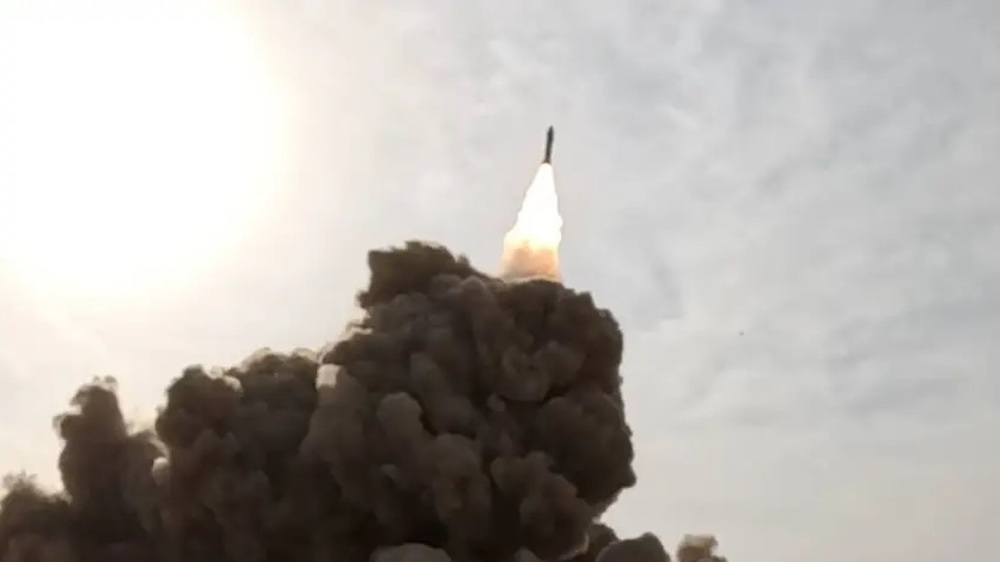


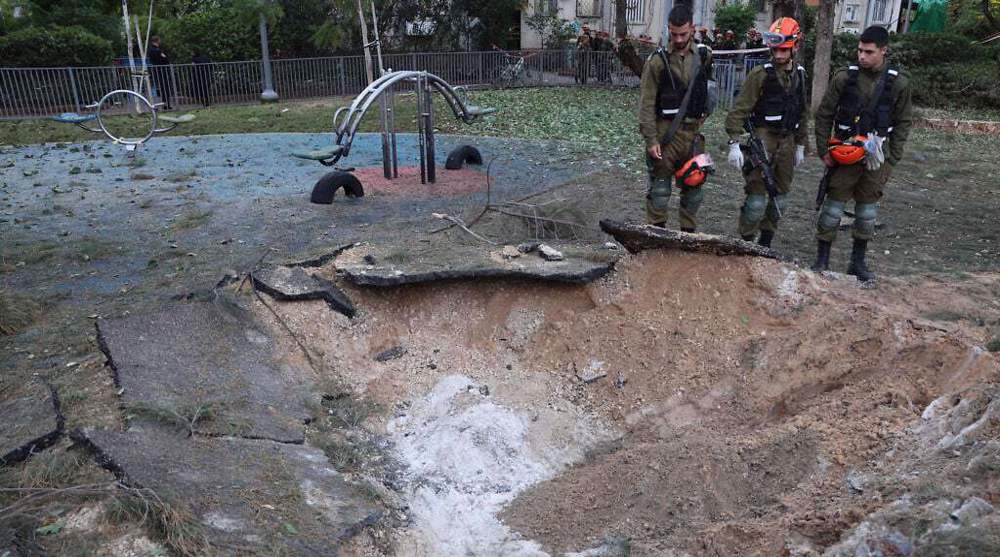




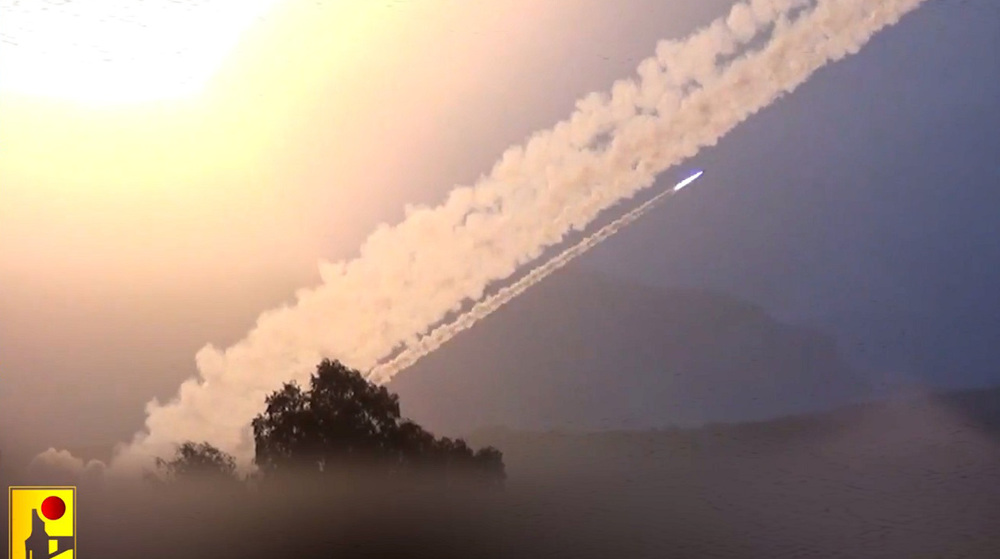

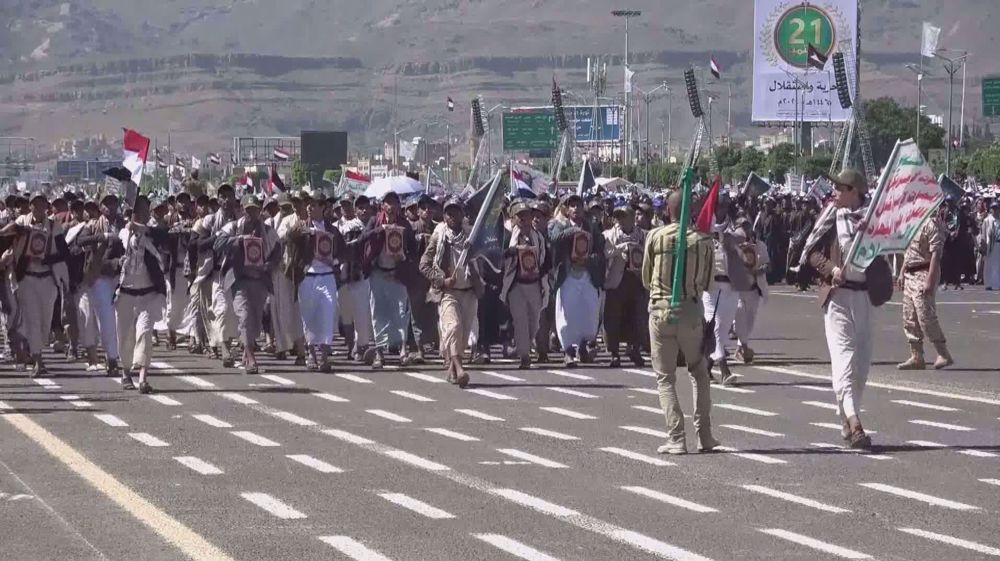

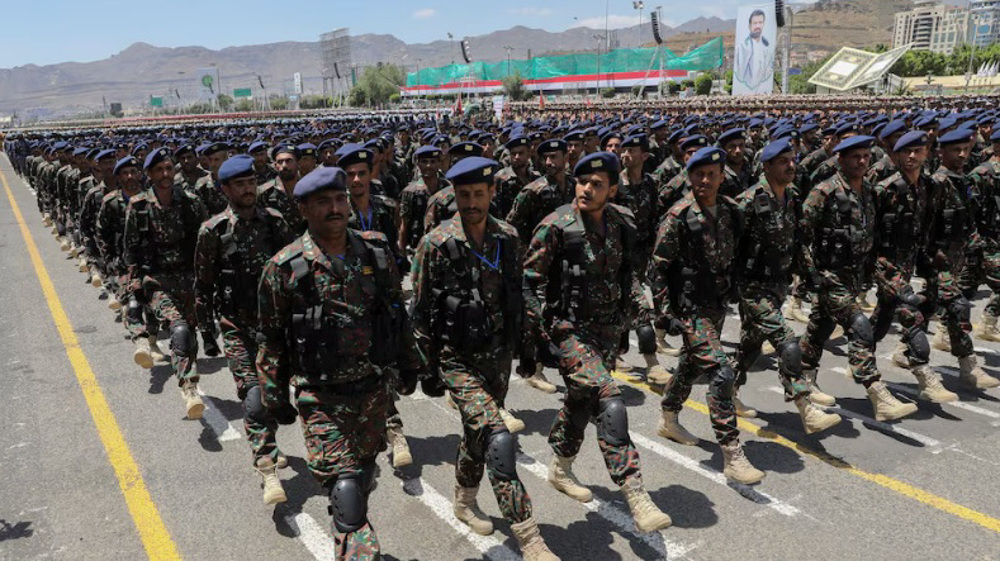
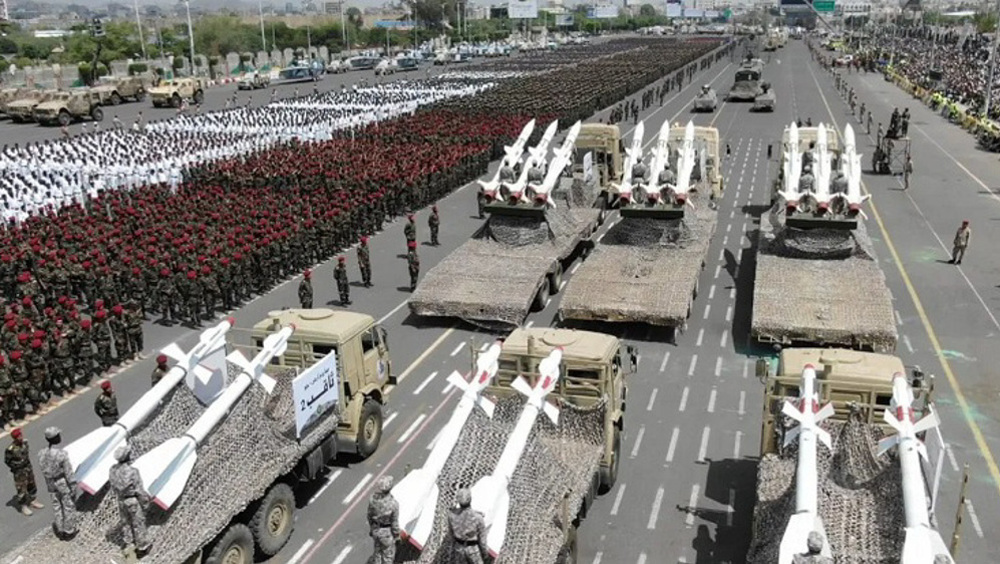

 This makes it easy to access the Press TV website
This makes it easy to access the Press TV website